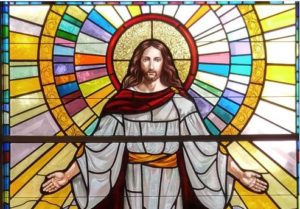It’s a common question skeptics of the resurrection ask. They ask that if Jesus really rose from the dead, then why didn’t he appear to Pontius Pilate, the Pharisees, and all who doubted him? Surely He would have done this for scripture teaches that God wants all people to be saved (2 Peter 3:9, 1 Timothy 2:4) and that Christ died for the entire world (John 3:16, 1 John 2:2), and that confession of Jesus’ lordship and in His resurrection are requirements for salvation (Romans 10:9), so then why didn’t Jesus appear to Pilate and the Pharisees so that they could believe in Him so that they could be saved? I propose several answers,.
First, It May Be That It Would Have Done No Good.
If you rewind to earlier to Jesus’ ministry, you’ll see that the Pharisees had more than enough evidence to believe that Jesus was who He said He was. Jesus healed many sick people at evening (Matthew 8:16-17, Mark 1:32-34, Luke 4:40-41), Jesus healed a man’s leprosy (Matthew 8:1-4, Mark 1:40-45, Luke 5:12-14), He once cleansed 10 lepers at the same time (Luke 17:11-19), healed a boy with a demon (Matthew 17:14-20, Mark 9:14-29, Luke 9:37-43), healed two blind men (Matthew 9:27-31), and raised Lazarus from the dead (John 11:1-45). If you saw a man do all of these things, you would think that that would be enough evidence to convince you that he is from God and that you should pay close attention to everything he has to say, wouldn’t it? Well, that wasn’t the case with the Pharisees. The Pharisees, even though they witnessed first hand many of Jesus’ miracles, they still didn’t believe in Him.
Instead, they tried to explain it all away by saying that he was doing his healings and exorcisms by the power of demons. Right after Jesus performed one of his exorcisms, a couple of Pharisees came and told the people with him that Jesus was casting out demons by the power of Beelzebub. Jesus responded that a kingdom divided against itself will not stand but will collapse. He then said that if Satan casts out Satan than that means that Satan’s kingdom is divided against itself and will not stand. In other words, if what the Pharisees were saying was true than that meant that the devil’s army was fighting amongst itself which makes absolutely no sense. This whole exchange can be read in its entirety in Matthew 12 and Mark 3. The point is this; the evidence for Jesus’ messianic status was so powerful, so overwhelming, that they could not deny that Jesus’ deeds were supernatural, but if they concluded that Jesus was doing these things by the Spirit of God then they would have to concede that Jesus did in fact come from God (which they did not want to do). So what did they do instead? They instead concluded that Jesus’ power must come from the devil. Jesus provided a brilliant refutation to that accusation, showing how absurd the claim was (since it would mean the demons are fighting against their own kind), and even in light of the brilliant refutation they still would not believe in Jesus!
I think their hearts were so hardened that no amount of evidence would convince them (reminds me of many modern atheists). If the risen Jesus had appeared before those very same Pharisees who voted for his death, they probably would have claimed that it was “trickery from the devil” or
“sorcery” or something like that. Or maybe they would have formulated some kind of swoon theory to try to argue that Jesus never died in the first place. The same can be said for Pontius Pilate. He may have tried to argue that his men failed at killing him in the first place.
Secondly, He May Have Appeared To At Least Some Of Them
This is often overlooked, but the book of Acts indicates that many of the Pharisees became Christians after Jesus’ death. “So the word of God spread. The number of disciples in Jerusalem
increased rapidly, and a large number of priests became obedient to the faith.” (Acts 6:7). Now,
granted, these may not be the same Pharisees who opposed Jesus and condemned him to death, but chances are that at least some of them are and that the reason they converted was because the risen Jesus appeared to them. The ancient pre-Pauline creed cited in 1 Corinthians 15 states that Jesus appeared to over 500 at the same time on one instance. It could be that many of the priests who were skeptics during Jesus’ life were there during that instance and that the resurrection was the final evidence that pushed them over to Christianity. Or it could just be that they heard the preaching of the disciples and converted.
So it may be that a postmortem appearance convinced a few of the priests that necessary since they converted anyway. The New Testament records don’t really give the reason for their conversion; it just says that they converted. There could have been some priests even before the specific ones mentioned in Acts 6 that converted on the basis of postmortem appearances (being part of the 500 mentioned in the pre-Pauline creed). But certainly not all of them converted to Christianity. As Acts indicates, Caiaphas was still opposed to Jesus and had Peter and John arrested for preaching in His name.
Finally, Even If This Question Were Unanswerable, What Would It Matter Anyway?
Even if I couldn’t answer the question, what would it matter anyway? Would it prove that Jesus did not rise from the dead and that therefore Christianity is false? Certainly not. We still have an abundance of historical evidence that needs accounting for. The skeptic must still explain (1) Jesus’ death by crucifixion, (2) the empty tomb, (3) the disciples’ belief that they saw Jesus alive shortly after his death, (4) the conversion of the church persecutor Paul, and (5) the conversion of the skeptic James. None of the 12-15 naturalistic explanations I’ve ever heard can account for these 5 facts, only the resurrection hypothesis can, therefore, the resurrection is the best explanation for the 5 aforementioned facts. By the way, if you want to see what





